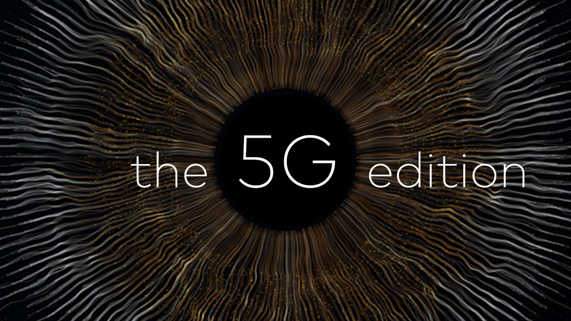
What 5G means for data privacy and security
March 4, 2021 | By Raj SeshadriThe proliferation of connections enabled by 5G will lead to an explosion in the amount of data created, collected, and stored. This will create endless possibilities for innovative solutions using the data — as well as the need for solutions that secure consumer data.
Today, data-oriented organizations collect and maintain a significant amount of human-consumption oriented data associated with its individual customers, including their preferences, purchase history, and habits.
5G and the Internet of Things will introduce unstructured machine data, making today’s data look like just the tip of the iceberg. Many companies, however, likely won’t have the knowledge, skills, and capital to effectively leverage the new data that becomes available. We believe that this will drive significant demand for next-generation data infrastructure, analytics tools, and AI/ML techniques.
With highly capable connected devices, Edge computing will play a key role to meet the “as-it-happens” real-time, instantaneous information delivery expectations from the end consumers. It will enable the movement of decision systems closer to the consumer but will require investment for analytics at the edge.
Putting the individual’s needs — and data ownership — at the center of data practices will be increasingly important to maintain trust and meet evolving privacy standards around the world. Consumer privacy, security, welfare and strategic government concerns, and increasing competition have already transformed the regulatory landscape.
The rise of 5G — and the monsoon of data it brings with it — will likely lead to new regulations and standards, as well as changing expectations from consumers. These regulations will likely be concentrated in key areas, such as enhancing privacy, data localization, data portability and sharing, along with government oversight and control.
This will require organizations to make further investments in identifying and managing the privacy and regulatory risks created by 5G, as well as data management technologies to ensure proper governance and management of the data ingested into their data ecosystem.
The new data interactions enabled by 5G, some of which might be happening without human intervention (such as machine-to-machine communication via always-on, always-connected devices), could further undermine consumer trust in organizations, devices, and experiences if their data protection and transparency practices are questionable.
Therefore, there is an expectation that organizations will take more proactive steps in identifying and managing the privacy and regulatory risks created by 5G, for example, promoting corporate data responsibility, enhancing transparency, and privacy-by-design solutions.

